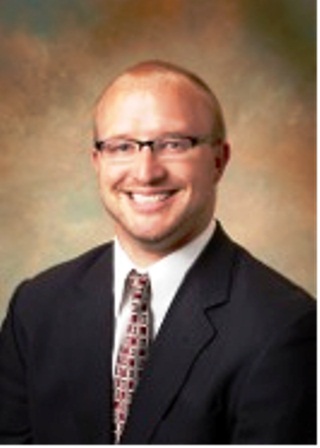
Chris Holmes received a 2013 Doctoral Fellowship. He shares about his current doctoral work and his experience in the first group of Doctoral Fellows supported by the Louisville Institute.
LI: Tell us about yourself and your doctoral program.
CH: I am a doctoral candidate in New Testament at Emory. Before moving to Atlanta, I earned a Master of Divinity from Princeton Theological Seminary and a Bachelor of Arts from Whitworth University. The PhD program at Emory has provided tremendous colleagues and very supportive faculty. My time at Emory has honed an approach to the writings of the New Testament that focuses on their literary and theological particularities while placing them within their religious, cultural, and political context. My two small children keep me grounded in the midst of my academic work.They also keep me on my toes, especially when they listen sometimes too attentively to dinnertime conversations about theology with my wife Jenelle, a Master of Divinity student at Candler School of Theology. We love Atlanta’s mild winters, seasonal festivals, and cultural diversity.
LI: With respect to your studies, what question currently matters to you and why?
CH: Perhaps it’s because I’ve been in school for far too long — or maybe it’s because my son Micah is learning to read — but I’m really interested in questions related to reading. What makes someone a good reader? What are the practices that form good readers? What are the virtues of good reading? Is there a singular mode or method of good reading or many? As a scholar and teacher of sacred texts, these questions are central to so much of what I do. An aspect of my dissertation explores how reading can be transformative: how the emotions, imagination, and stylistic features of a text can reframe the reader’s perspectives and mental frameworks.
LI: In what ways has the LI Doctoral Fellowship supported your formation as a theological educator?
CH: The Louisville Institute Doctoral Fellowship has supported my formation in a number of ways. From the very beginning, the Fellowship has helped me reflect on my vocation as a theological educator. Together with other fellows, I have explored the important, though at times tenuous, relationship between the church and the academy. I have reflected on what it means to invest myself—my interests, passions, experiences, and my weaknesses—into the classroom and my research.
Second, the Fellowship has introduced me to a community of people doing really exciting work within theological education. Other fellows have become a source of friendship and encouragement as we tackle exams, dissertation projects, and the job market. Deans and faculty members have shared valuable perspectives on teaching, collegiality, and institutional identity.
Finally, the Fellowship has provided a historical framework for understanding the changing nature of theological education. Meetings with the Fellowship have challenged me to think critically, and above all theologically, about these changes. Presentations, readings, and discussions have help demystify the process of moving from graduate school to the professoriate; they have forced me to consider the nature and importance of race and diversity in the classroom; and, they have given me insight into how to best pursue my sense of vocation even as theological education undergoes significant changes.
LI: How would you advise eligible doctoral students who are interested in applying for this fellowship?
CH: First of all, I recommend that you make an effort to get to know the Louisville Institute. Check out their website. Try to attend their reception at SBL/AAR. Talk to current Doctoral Fellows about their experience. Get to know the people involved with the Louisville Institute because chances are the other Fellows and the mentors will play a major role in shaping your experience in the Doctoral Fellowship (at least this has been true of my experience). Second, if you decide to apply, be honest and be yourself. Be honest about your understanding of the relationship between the church and the academy. Be confident about how your academic and professional experiences have prepared you to become a theological educator, but also identity ways that the Fellowship can support that preparation. And be yourself. Own your passions, questions, and experiences. I am amazed with the diversity of backgrounds, courses of study, research interests, and ecclesial traditions of the current Doctoral Fellows; this diversity has helped make our time together so rich.